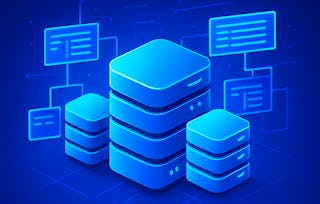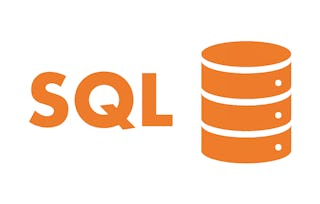In Managing Relational Databases, you’ll learn about their structure, design, and use of primary and foreign key fields equipping you with foundational knowledge.

Managing Relational Databases

Managing Relational Databases
This course is part of multiple programs.

Instructor: Shadow Farrell
Top Instructor
2,798 already enrolled
Included with
31 reviews
Recommended experience
What you'll learn
Students will learn to create and manage relational databases, and to use SQL for data analysis and reporting.
Skills you'll gain
Details to know

Add to your LinkedIn profile
See how employees at top companies are mastering in-demand skills

Build your subject-matter expertise
- Learn new concepts from industry experts
- Gain a foundational understanding of a subject or tool
- Develop job-relevant skills with hands-on projects
- Earn a shareable career certificate from Akamai Technologies, Inc.

There are 7 modules in this course
In this module, you will learn about the concepts behind databases and relational database. You will explore the structure of a relational database and SQL, the language used to manage relational databases. Then you will master the skills to create queries using the SELECT statement including conditional queries, logical operations, comparison and arithmetic operators. Finally you will explore more complex criteria that can be used to search for ranges and with pattern matching.
What's included
12 videos6 readings3 assignments1 discussion prompt
In this module you will learn how to create queries with multiple criteria using the key words AND and OR. You will also learn to create queries using more complex criteria involving comparison and arithmetic operators, searching for ranges of values, handling NULL values, and finally incorporating pattern matching and regular expressions.
What's included
9 videos2 readings3 assignments
In this module, you will learn about functions and date and time data types. You will learn to use date and aggregate functions to extract and analyze data. You will also learn to format dates, strings and numbers so they can be used for reporting and analysis.
What's included
7 videos7 readings4 assignments
In this module, you will learn how to combine multiple queries together using UNION, INTERSECT and EXCEPT. Then you will learn how to combine data from multiple tables using joins. You will learn the four types of joins and then explore using them with multiple tables and for self-joins. Finally, you will organize data using ORDER BY, GROUP BY, and ROLLUP.
What's included
10 videos3 readings4 assignments
In this module, you will learn how to use subqueries, which are queries contained inside of other queries. You will learn how and when to use subqueries in the WHERE and FROM clauses. You will also learn about correlated subqueries and subqueries used to test for the existence of records. Finally you will learn how to create nested subqueries for situations where just one subquery won't get the data you need.
What's included
7 videos1 reading3 assignments
In this module, you will learn how to create databases, tables and fields. You will learn to insert new records, update existing records, and delete records that are no longer needed.
What's included
7 videos2 readings3 assignments
In this module you will demonstrate mastery of the course objectives.
What's included
2 videos1 peer review
Earn a career certificate
Add this credential to your LinkedIn profile, resume, or CV. Share it on social media and in your performance review.
Instructor

Offered by
Explore more from Data Management

Birla Institute of Technology & Science, Pilani
 Status: Preview
Status: PreviewUniversitat Politècnica de València
 Status: Free Trial
Status: Free Trial
Why people choose Coursera for their career

Felipe M.

Jennifer J.

Larry W.

Chaitanya A.
Learner reviews
- 5 stars
87.09%
- 4 stars
6.45%
- 3 stars
3.22%
- 2 stars
0%
- 1 star
3.22%
Showing 3 of 31
Reviewed on Sep 3, 2024
The way of teaching makes the learner very comfortable to grasp the technology with ease.

Open new doors with Coursera Plus
Unlimited access to 10,000+ world-class courses, hands-on projects, and job-ready certificate programs - all included in your subscription
Advance your career with an online degree
Earn a degree from world-class universities - 100% online
Join over 3,400 global companies that choose Coursera for Business
Upskill your employees to excel in the digital economy
Frequently asked questions
To access the course materials, assignments and to earn a Certificate, you will need to purchase the Certificate experience when you enroll in a course. You can try a Free Trial instead, or apply for Financial Aid. The course may offer 'Full Course, No Certificate' instead. This option lets you see all course materials, submit required assessments, and get a final grade. This also means that you will not be able to purchase a Certificate experience.
When you enroll in the course, you get access to all of the courses in the Certificate, and you earn a certificate when you complete the work. Your electronic Certificate will be added to your Accomplishments page - from there, you can print your Certificate or add it to your LinkedIn profile.
More questions
Financial aid available,
¹ Some assignments in this course are AI-graded. For these assignments, your data will be used in accordance with Coursera's Privacy Notice.


